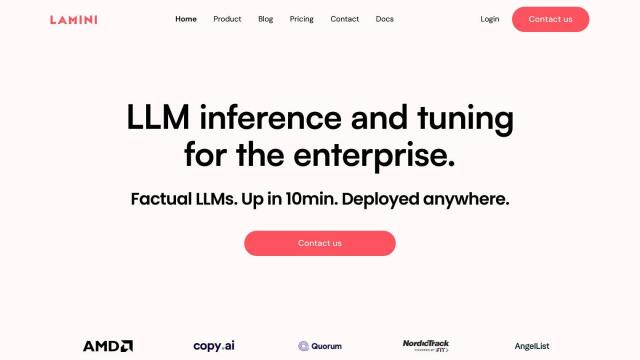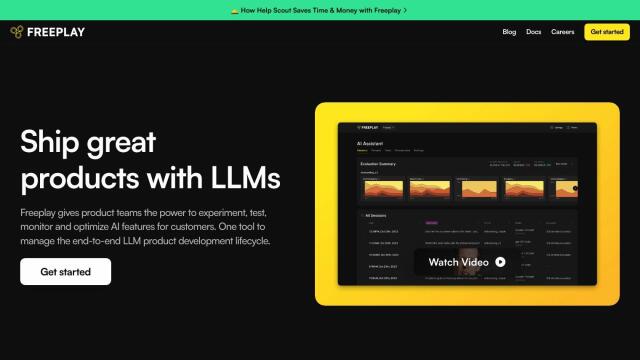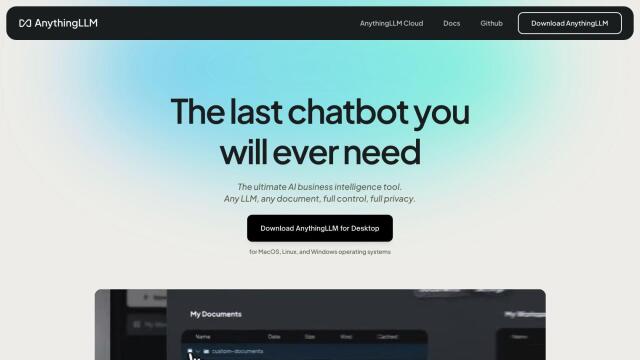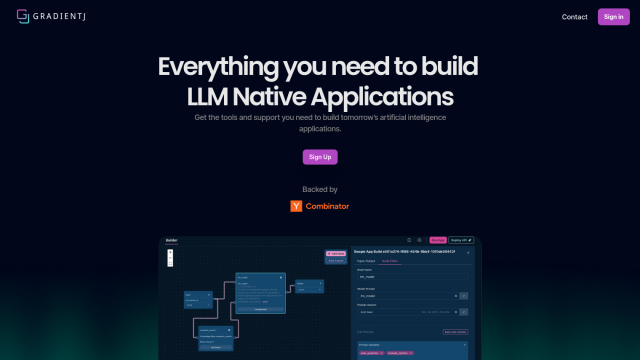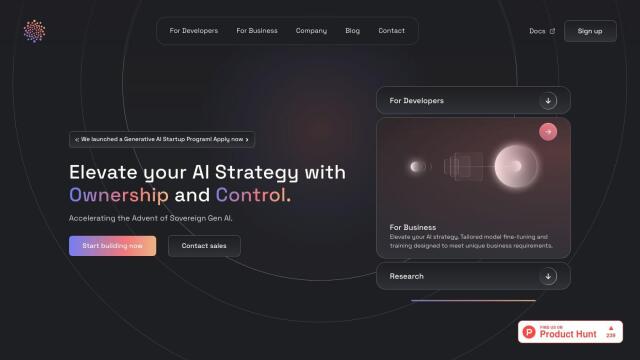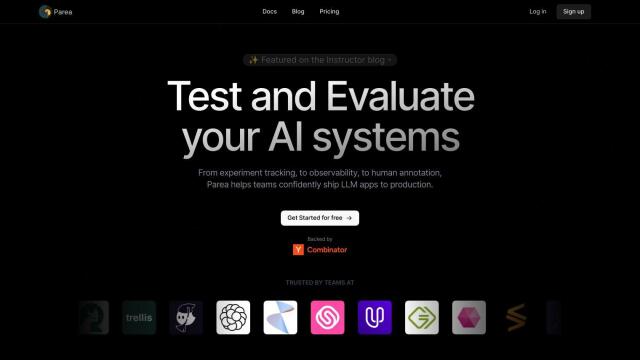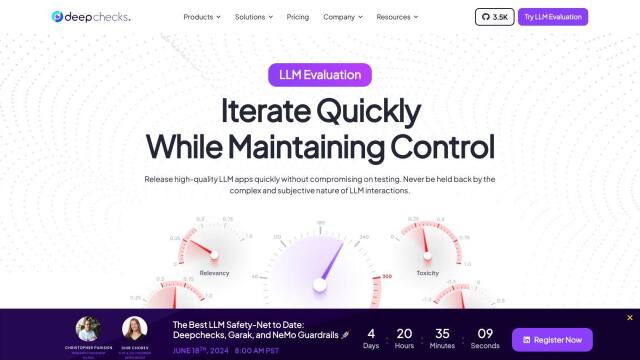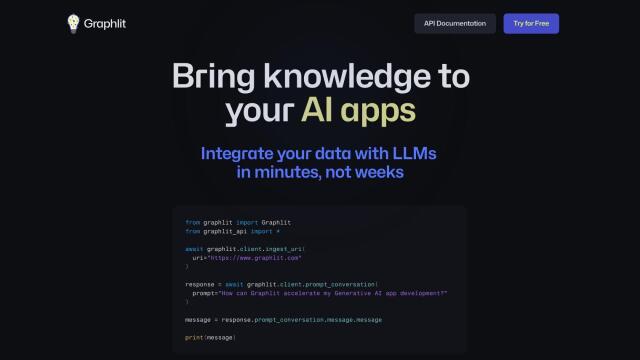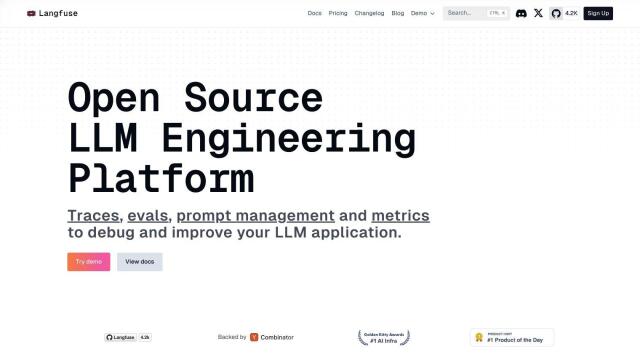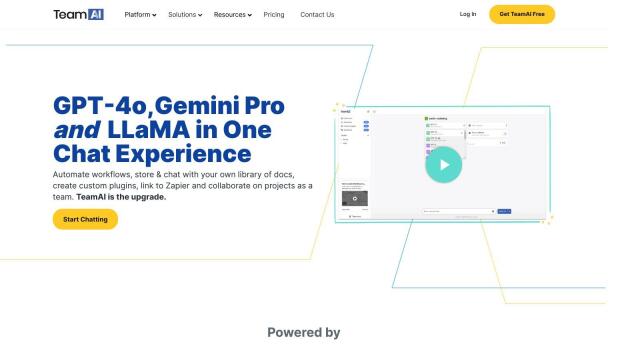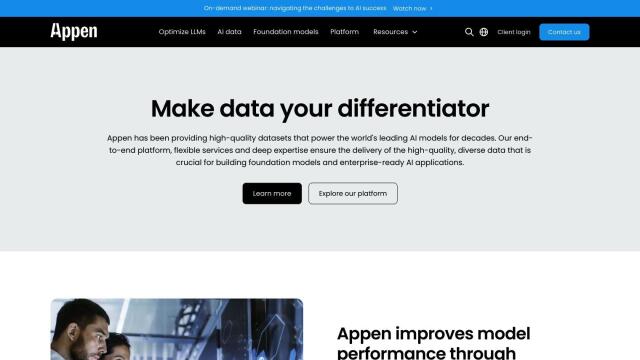Question: I need a solution to manage and link large language model data for my AI app development, can you suggest something?


LLMStack
If you're looking for a more comprehensive way to manage and integrate large language model data for your AI app development, LLMStack is a great option. This open-source platform lets developers create AI apps using pre-trained models from companies like OpenAI and Cohere. It can import data files from a variety of sources, including Google Drive and Notion, and link it to LLMs. LLMStack also comes with a no-code builder, vector databases for efficient storage and multi-tenancy options for access control.

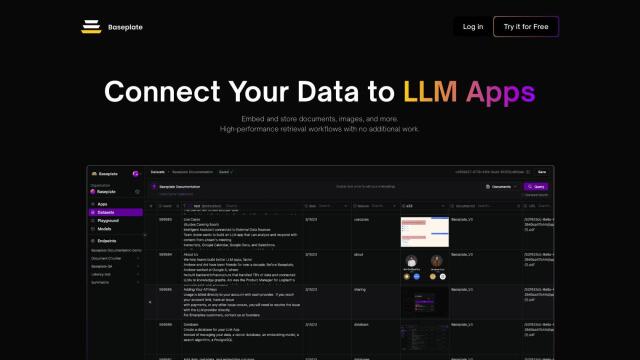
Baseplate
Another powerful option is Baseplate, which focuses on efficient embedding, storage and version control of data. It can combine different types of data, including documents and images, into a single hybrid database. Baseplate's APIs can generate multimodal LLM responses, and it's designed to be easier to manage and deploy LLM apps. The platform's stages for data ingestion, custom embeddings and deployment offer a linear workflow for AI development.
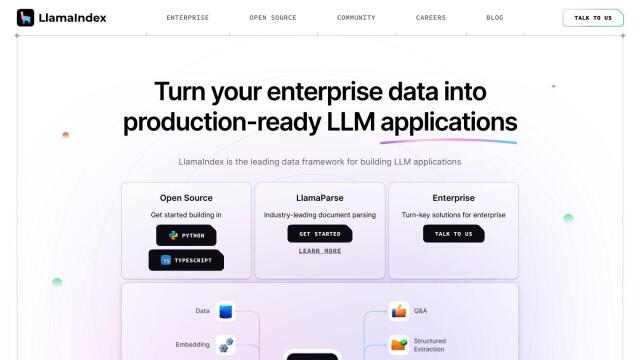
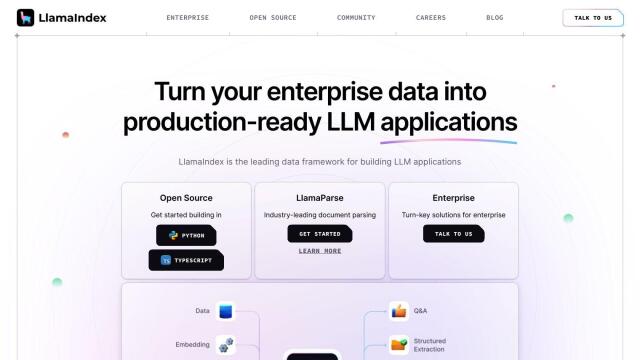
LlamaIndex
For a flexible data framework, check out LlamaIndex. The project supports more than 160 data sources and 40 vector store, document store, graph store and SQL database providers. It can load data, index it and query it, and can be used for a variety of use cases like financial services analysis and conversational assistants. LlamaIndex offers free and paid tiers, as well as an enterprise option that is SOC2 Type 1 Certified and HIPAA compliant.


Airtrain AI
Last, Airtrain AI offers a no-code compute platform for data teams that need to manage big data pipelines and large language models. It includes an LLM Playground for experimenting with different models, a Dataset Explorer for data visualization and AI Scoring for model evaluation. The platform is designed to make LLMs accessible and economical, with different pricing tiers depending on your needs.



